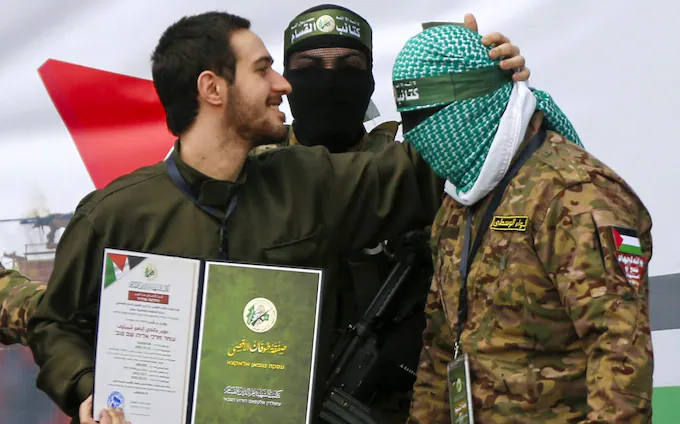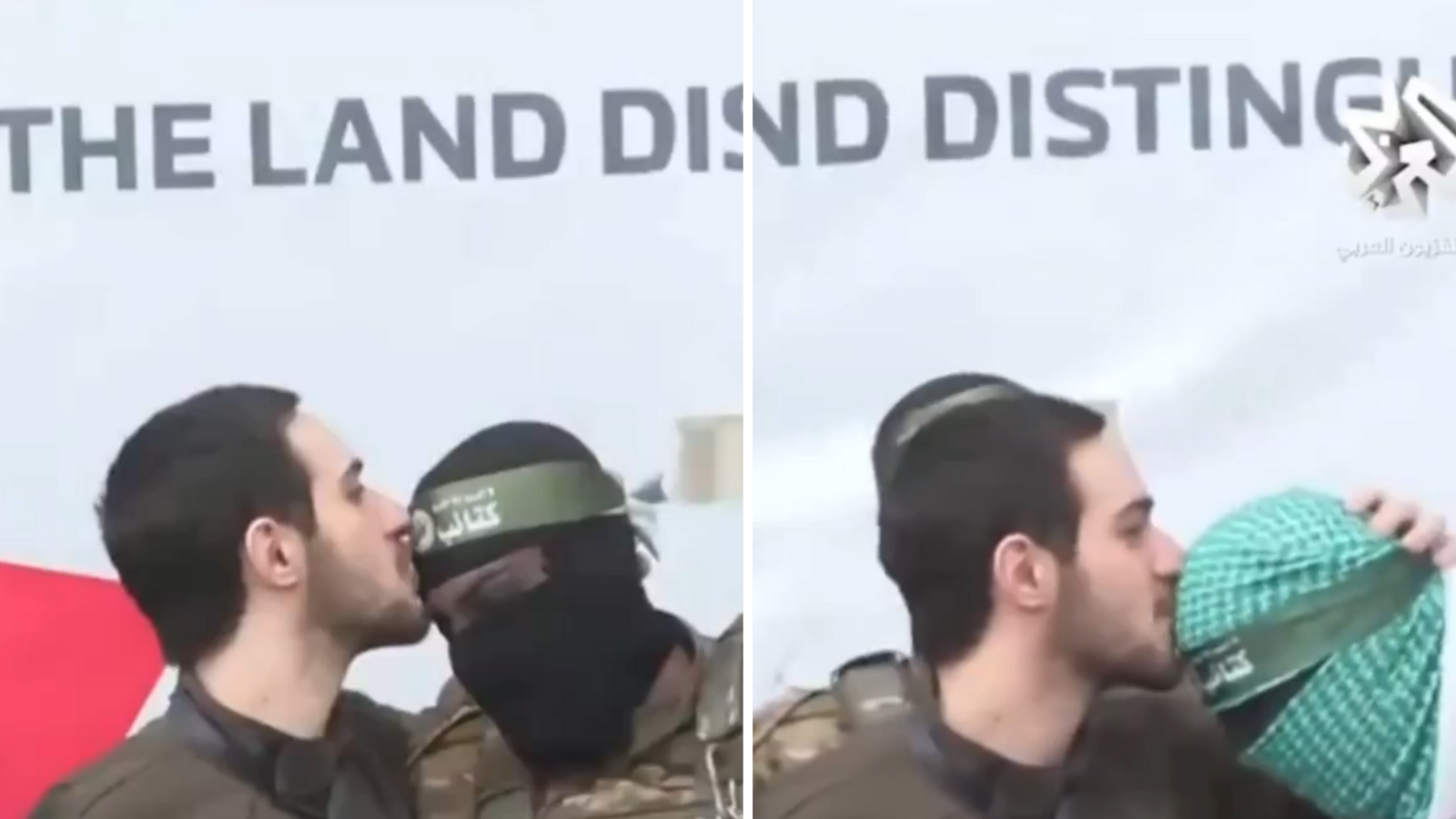The recent release of Israeli hostages by Hamas as part of a ceasefire deal has sparked an unusual moment that has taken the internet by storm. Omer Shem Tov, one of the three Israeli hostages freed, was seen kissing two of his masked Hamas captors on the forehead before his release.
This surprising act has left many wondering about its meaning, generating a flurry of mixed reactions from the public. Was it an act of gratitude, an emotional outburst, or something orchestrated? The incident has now become a topic of intense discussion, with various interpretations surfacing from different quarters.
A Gesture That Sparked Global Reactions
When footage of Omer Shem Tov’s release surfaced online, it was not just the relief of seeing hostages freed that caught the world’s attention—it was his unexpected act of affection toward his captors.
As he approached the masked gunmen, he placed his hands on the back of their heads and kissed their foreheads. The video went viral, leaving the global audience divided over its interpretation.
Some saw it as a profound human moment, highlighting resilience, forgiveness, or perhaps even Stockholm Syndrome—a psychological condition where captives develop a sense of attachment to their captors. Others believed that the act was possibly staged or forced, a show put on by Hamas to shape a particular narrative.
Social media exploded with reactions. Some expressed hope that this moment of warmth could lead to a better future, while others viewed it with suspicion.
Read : BBC Documentary on Gaza Faces Backlash for Featuring Son of Hamas Leader as Narrator
One user tweeted, “Let’s hope this small act leads to a bigger wave of peace. Every step counts towards harmony.” Meanwhile, skeptics argued that such a display was likely orchestrated, suggesting that Shem Tov may have been compelled to act in a certain way for propaganda purposes.
Family’s Response and Insights Into Omer Shem Tov’s Character
Omer Shem Tov’s family, however, was not surprised by his actions. His grandmother, Sara, shared her thoughts on Israel’s Channel 12, stating that this kind of gesture was in line with her grandson’s personality.
“That’s Omer. He gets on with everyone. Even Hamas… They love him even there,” she said, indicating that Shem Tov has always been a jovial and amicable person.
⚡️#BREAKING Israeli “hostage” kisses the forehead of 2 Hamas members pic.twitter.com/Icg6TDEyEQ
— War Monitor (@WarMonitors) February 22, 2025
His father, Malki Shem Tov, echoed similar sentiments, describing his son as “the most positive-minded person in the world.” After spending 505 days in captivity, his father expressed relief at seeing him in good spirits.
“Omer is thinner… but is upbeat, upbeat, the most positive-minded in the world. We didn’t even know what he would look like. He just came out and surprised us all, with the smile, the wave—it’s just crazy,” he said.
While the family’s statements suggest that Omer Shem Tov’s gesture may have been a natural extension of his warm personality, the broader implications of his actions remain widely debated. Could his attitude towards his captors indicate that he was treated well, or was it merely a survival tactic in a high-stakes situation?
Symbolism or Coercion? The Bigger Picture
The kiss has ignited speculation over what it represents in the broader context of the Israeli-Palestinian conflict. While some have interpreted it as a rare moment of human connection in a war-torn region, others question whether Shem Tov was coerced into such behavior for propaganda purposes.
The timing of the release, coming amid a fragile ceasefire agreement, has also led many to examine whether Hamas was attempting to send a message. The release ceremony, where hostages were presented with certificates while being paraded before cameras, was another aspect that raised eyebrows.

Regardless of interpretation, this incident has forced many to confront a different perspective on hostage situations. It also raises questions about the psychological impact of prolonged captivity.
After spending over a year and a half in Hamas custody, could Omer Shem Tov’s gesture have been an unconscious survival mechanism rather than a deliberate display of gratitude?
The Israel Defense Forces (IDF) and government officials have not commented extensively on the specific nature of Shem Tov’s actions, but they remain focused on securing the release of other remaining hostages.
As debates continue over the deeper meaning behind the moment, the focus remains on the broader implications of the ongoing conflict and the urgent need for diplomatic resolutions.
Ultimately, whether Shem Tov’s gesture was an instinctive act of kindness, an expression of gratitude, or a product of coercion remains unknown.
What is clear, however, is that this single moment has become a powerful symbol, forcing many to reconsider the human complexities within long-standing geopolitical conflicts. As the world watches how events unfold, one can only hope that peace, however improbable it may seem, finds a way to prevail.

